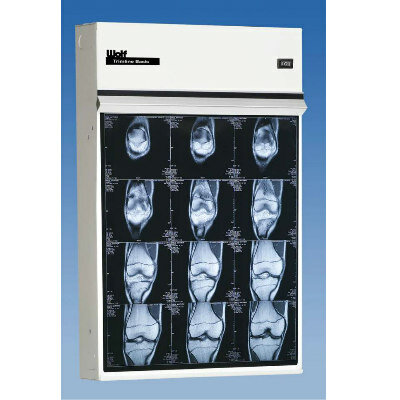Seattle Hospital Network Shifts Away from Overlapping Surgeries
|
By HospiMedica International staff writers Posted on 22 Aug 2017 |

Image: The Swedish Health First Hill Medical pavilion (Photo courtesy of Swedish Health).
Healthcare provider Swedish Health (Seattle, WA, USA) has announced plans to significantly curtail the current practice of overlapping surgeries in their hospitals.
The updated policy changes were developed collaboratively with surgeons, anesthesiologists, charge nurses, and other caregivers, following several months of bad publicity and heightened regulatory scrutiny of the practice. Surgeons at Swedish Health run facilities must now be in the operating room (OR) for the substantial majority of all procedures, with limited clearance to step away during more mundane tasks at the beginning and end, such as closing the surgical incision.
The revised guidelines were announced by R. Guy Hudson, MD, CEO of Swedish Health Services, who also noted there was no indication that the previous policy, which allowed for overlapping surgeries, was compromising patient care. Dr. Hudson was elevated to CEO when previous CEO Tony Armada resigned the post in February 2017, following an investigation by the Seattle Times (WA, USA) of the high prevalence of overlapping surgeries in the neuroscience unit of Cherry Hill, a hospital operated by Swedish. The newspaper article spurred an investigation by the U.S. Attorney’s office.
Johnny Delashaw, MD, who was a that time the chair of the Swedish Neuroscience Institute, also faced significant repercussions following the Seattle Times article. Marked as the driving force behind the extensive adoption of overlapping surgeries, Dr. Delashaw has since exited the hospital and had his state medical license suspended. He has appealed the suspension, maintaining complaints against him were inspired by staff members harboring personal grievances.
“We have established more specific parameters around attending surgeon presence during surgical procedures. We have also enhanced monitoring, centralized scheduling, and revised patient-consent communications,” announced Swedish Health in a press release. “This is an important step in a series of enhancements that will continue Swedish's focus on improving the overall patient experience.”
Swedish Health operates five hospitals and multiple other facilities in and around Seattle (WA, USA), making them the metropolitan area’s largest nonprofit provider of health services.
Related Links:
Swedish Health
Seattle Times
The updated policy changes were developed collaboratively with surgeons, anesthesiologists, charge nurses, and other caregivers, following several months of bad publicity and heightened regulatory scrutiny of the practice. Surgeons at Swedish Health run facilities must now be in the operating room (OR) for the substantial majority of all procedures, with limited clearance to step away during more mundane tasks at the beginning and end, such as closing the surgical incision.
The revised guidelines were announced by R. Guy Hudson, MD, CEO of Swedish Health Services, who also noted there was no indication that the previous policy, which allowed for overlapping surgeries, was compromising patient care. Dr. Hudson was elevated to CEO when previous CEO Tony Armada resigned the post in February 2017, following an investigation by the Seattle Times (WA, USA) of the high prevalence of overlapping surgeries in the neuroscience unit of Cherry Hill, a hospital operated by Swedish. The newspaper article spurred an investigation by the U.S. Attorney’s office.
Johnny Delashaw, MD, who was a that time the chair of the Swedish Neuroscience Institute, also faced significant repercussions following the Seattle Times article. Marked as the driving force behind the extensive adoption of overlapping surgeries, Dr. Delashaw has since exited the hospital and had his state medical license suspended. He has appealed the suspension, maintaining complaints against him were inspired by staff members harboring personal grievances.
“We have established more specific parameters around attending surgeon presence during surgical procedures. We have also enhanced monitoring, centralized scheduling, and revised patient-consent communications,” announced Swedish Health in a press release. “This is an important step in a series of enhancements that will continue Swedish's focus on improving the overall patient experience.”
Swedish Health operates five hospitals and multiple other facilities in and around Seattle (WA, USA), making them the metropolitan area’s largest nonprofit provider of health services.
Related Links:
Swedish Health
Seattle Times
Latest Hospital News News
- Nurse Tracking System Improves Hospital Workflow
- New Children’s Hospital Transforms California Healthcare
- Noisy Hospitals Face Threat of Decreased Federal Compensation
- Orthopedics Centre of Excellence Planned for Guy’s Hospital
- Research Suggests Avoidance of Low-Value Surgical Procedures
- U.S. Federal Readmission Fines Linked to Higher Mortality
- Columbia China to Build New Hospital in Jiaxing
- Dubai Debuts Second Robotic Pharmacy Service
- ACC to Launch Valvular Heart Disease Program in China
- Mortality Rates Lower at Major Teaching Hospitals
- South Australia to Inaugurate Upscale Hospital
- Raffles to Launch Second Hospital Project in China
- Research Center Tackles Antimicrobial Drugs Challenge
- Miami Cardiac & Vascular Institute Completes Expansion Project
- Hospital Antibiotic Policies Improve Prescription Practices
- USC Virtual Care Clinic to Employ Avatar Doctors
Channels
Artificial Intelligence
view channel
AI-Powered Algorithm to Revolutionize Detection of Atrial Fibrillation
Atrial fibrillation (AFib), a condition characterized by an irregular and often rapid heart rate, is linked to increased risks of stroke and heart failure. This is because the irregular heartbeat in AFib... Read more
AI Diagnostic Tool Accurately Detects Valvular Disorders Often Missed by Doctors
Doctors generally use stethoscopes to listen for the characteristic lub-dub sounds made by heart valves opening and closing. They also listen for less prominent sounds that indicate problems with these valves.... Read moreCritical Care
view channel
Powerful AI Risk Assessment Tool Predicts Outcomes in Heart Failure Patients
Heart failure is a serious condition where the heart cannot pump sufficient blood to meet the body's needs, leading to symptoms like fatigue, weakness, and swelling in the legs and feet, and it can ultimately... Read more
Peptide-Based Hydrogels Repair Damaged Organs and Tissues On-The-Spot
Scientists have ingeniously combined biomedical expertise with nature-inspired engineering to develop a jelly-like material that holds significant promise for immediate repairs to a wide variety of damaged... Read more
One-Hour Endoscopic Procedure Could Eliminate Need for Insulin for Type 2 Diabetes
Over 37 million Americans are diagnosed with diabetes, and more than 90% of these cases are Type 2 diabetes. This form of diabetes is most commonly seen in individuals over 45, though an increasing number... Read moreSurgical Techniques
view channel
Miniaturized Implantable Multi-Sensors Device to Monitor Vessels Health
Researchers have embarked on a project to develop a multi-sensing device that can be implanted into blood vessels like peripheral veins or arteries to monitor a range of bodily parameters and overall health status.... Read more
Tiny Robots Made Out Of Carbon Could Conduct Colonoscopy, Pelvic Exam or Blood Test
Researchers at the University of Alberta (Edmonton, AB, Canada) are developing cutting-edge robots so tiny that they are invisible to the naked eye but are capable of traveling through the human body to... Read more
Miniaturized Ultrasonic Scalpel Enables Faster and Safer Robotic-Assisted Surgery
Robot-assisted surgery (RAS) has gained significant popularity in recent years and is now extensively used across various surgical fields such as urology, gynecology, and cardiology. These surgeries, performed... Read morePatient Care
view channelFirst-Of-Its-Kind Portable Germicidal Light Technology Disinfects High-Touch Clinical Surfaces in Seconds
Reducing healthcare-acquired infections (HAIs) remains a pressing issue within global healthcare systems. In the United States alone, 1.7 million patients contract HAIs annually, leading to approximately... Read more
Surgical Capacity Optimization Solution Helps Hospitals Boost OR Utilization
An innovative solution has the capability to transform surgical capacity utilization by targeting the root cause of surgical block time inefficiencies. Fujitsu Limited’s (Tokyo, Japan) Surgical Capacity... Read more
Game-Changing Innovation in Surgical Instrument Sterilization Significantly Improves OR Throughput
A groundbreaking innovation enables hospitals to significantly improve instrument processing time and throughput in operating rooms (ORs) and sterile processing departments. Turbett Surgical, Inc.... Read moreHealth IT
view channel
Machine Learning Model Improves Mortality Risk Prediction for Cardiac Surgery Patients
Machine learning algorithms have been deployed to create predictive models in various medical fields, with some demonstrating improved outcomes compared to their standard-of-care counterparts.... Read more
Strategic Collaboration to Develop and Integrate Generative AI into Healthcare
Top industry experts have underscored the immediate requirement for healthcare systems and hospitals to respond to severe cost and margin pressures. Close to half of U.S. hospitals ended 2022 in the red... Read more
AI-Enabled Operating Rooms Solution Helps Hospitals Maximize Utilization and Unlock Capacity
For healthcare organizations, optimizing operating room (OR) utilization during prime time hours is a complex challenge. Surgeons and clinics face difficulties in finding available slots for booking cases,... Read more
AI Predicts Pancreatic Cancer Three Years before Diagnosis from Patients’ Medical Records
Screening for common cancers like breast, cervix, and prostate cancer relies on relatively simple and highly effective techniques, such as mammograms, Pap smears, and blood tests. These methods have revolutionized... Read morePoint of Care
view channel
Critical Bleeding Management System to Help Hospitals Further Standardize Viscoelastic Testing
Surgical procedures are often accompanied by significant blood loss and the subsequent high likelihood of the need for allogeneic blood transfusions. These transfusions, while critical, are linked to various... Read more
Point of Care HIV Test Enables Early Infection Diagnosis for Infants
Early diagnosis and initiation of treatment are crucial for the survival of infants infected with HIV (human immunodeficiency virus). Without treatment, approximately 50% of infants who acquire HIV during... Read more
Whole Blood Rapid Test Aids Assessment of Concussion at Patient's Bedside
In the United States annually, approximately five million individuals seek emergency department care for traumatic brain injuries (TBIs), yet over half of those suspecting a concussion may never get it checked.... Read more
New Generation Glucose Hospital Meter System Ensures Accurate, Interference-Free and Safe Use
A new generation glucose hospital meter system now comes with several features that make hospital glucose testing easier and more secure while continuing to offer accuracy, freedom from interference, and... Read moreBusiness
view channel
Johnson & Johnson Acquires Cardiovascular Medical Device Company Shockwave Medical
Johnson & Johnson (New Brunswick, N.J., USA) and Shockwave Medical (Santa Clara, CA, USA) have entered into a definitive agreement under which Johnson & Johnson will acquire all of Shockwave’s... Read more














